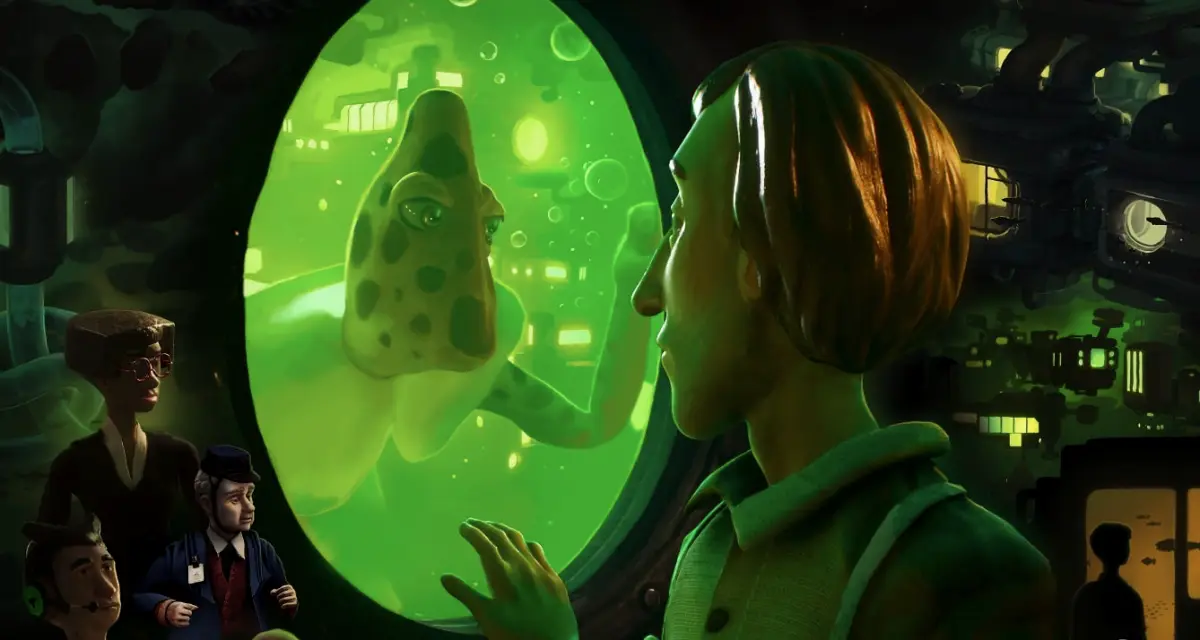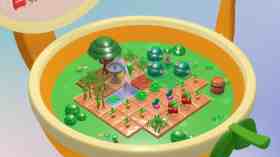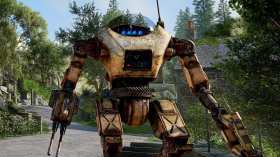Living is an inherently odd state of being. Most often, we ignore this, to get on with our day, but devote any sort of time to examining the whys and hows, and you’ll come to the same conclusion: it’s odd, complex, and unknowable. But we’re all here, for one reason or another, all with our own ideas, and directions, and purposes. Some of us have a better grasp on purpose. Others are still searching. Harold Halibut, with its slow-moving philosophical tale, feels like a rumination on this state.
Harold, our titular hero, is a man in search of purpose, embroiled in the mundanity of everyday tasks aboard a sunken space ship known as the Fedora I. In his far-distant future, a catastrophe on Earth forced a failed evacuation to the stars. Rather than finding a planet to settle, the Fedora I sunk its way to the bottom of the ocean, where generations of humans have attempting to find a new life, and new happiness.
Harold is not a happy person. While he maintains a sense of dogged optimism, his days are so often categorised by negativity. He’s seen as a doormat by his fellow Fedorans, and is often tricked and teased even as he attempts to help in his role as a handyman. His guardian Mareaux scolds him for being forgetful, for taking up space.
In the opening hours of Harold Halibut, the narrative and its many mundane back-and-forth fetch quests does very little to endear you to Harold. But in a narrative turning point that changes the entire direction of Harold Halibut on one fateful in-game day, there are layers added to this mundanity that elevate Harold, and his role in this story.
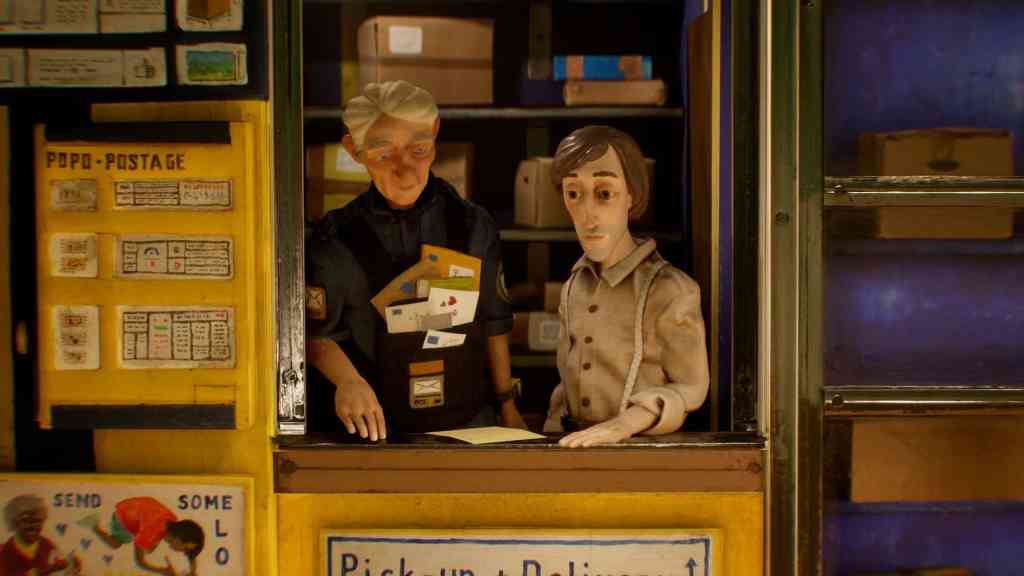
Purpose is something we all seek, and as the game opens, we see a Harold lacking purpose. He’s a beige figure with a stooped back, bowing to pressure from government, from his companions, even from the neighbourhood bully kid. But with the arrival of a strange being on the Fedora I – a fish creature known as Weeoo, the transformative impact of purpose is made clear.
In Weeoo, Harold recognises something fundamental about existence on the Fedora I. That life exists beyond its borders, and while he’s only allowed himself to grow within its walls, this is an imagined barrier. The world is much larger than he ever thought.
It’s a growth that is deftly told throughout the 12 hour runtime of Harold Halibut, with plenty of time devoted to the poignancy that Harold evolves to feel. What begins is a beige journey through the halls of the Fedora I, as Harold completes task after task with only rare sympathy or acknowledgement. The routine is safe, so Harold continues his days putting one foot in front of the other, letting the world glaze over.
Read: Harold Halibut: Why handmade games aren’t taking a step back in an AI-driven future
Weeoo is a disruption, at first – an inconvenience caught in the Fedora I’s filter tank. But in recognising a living being that needs help, Harold begins to break his habits, making time to care, and time to connect. His journey to nurse Weeoo back to health attracts a richness into his orbit – he reconnects with a past partner, rediscovers the joy of childhood truancy, and gets to know the station’s mail clerk, who becomes a guiding light for the “new” Harold.
It’s in opening up that Harold also changes life aboard Fedora I, with his discoveries and desire for renewed purpose inspiring a glorious upheaval that plays out in narrative cutscenes, and in a quieter, more carefully-written moments. The change is a spectacle, and one that buoys the tale of Harold Halibut to a wonderful, bittersweet conclusion.
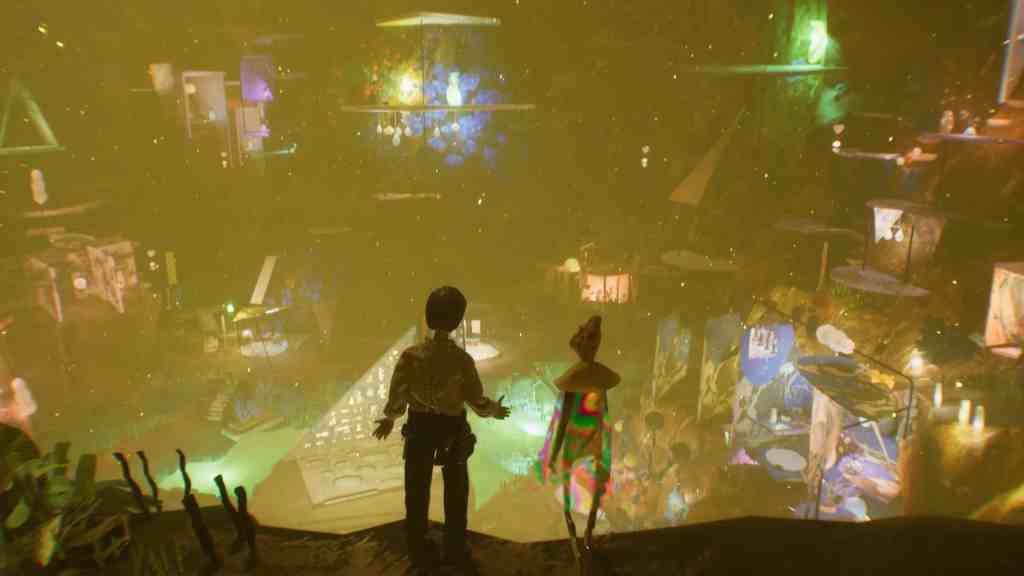
In parts, the tale of Harold Halibut is overly slow, in a way that encourages frustration with its mundanity and its linear flow, but even in its quieter, more disjointed beats, the game is a treat to experience.
Developer Slow. Bros has packed such detail into the world of Harold Halibut that it can be easily understood as a moving work of art. Each item in the game has been scanned in from the real world, and it lends a sense of tangibility to each character and set piece. You can see the impact of fingers on character models, and feel the adhesive gluing everything together. This is so clearly a human story, crafted by human hands.
Even as you’re trampling from one part of the game’s world to another, you’ll notice minor details along the way – tiny rivets packed into walls, little structures made of plastic and tubing. The world is doll-like, and playing it all the way through feels like manipulating tiny little toys along their grand destinies.
In choosing this particular art style, Slow Bros. has ensured Harold Halibut feels familiar and charming. Characters are personable, and endearing. And as they grow, you feel a sense of responsibility to take them along their chosen path.
Despite this path being surprisingly linear, with many of the game’s main questlines being simple, and playing out in long, dialogue-heavy segments, Harold Halibut maintains a deep sense of intrigue, and a richness of character growth. It’s an excellent, layered exploration of purpose, and where we fit into the fabric of the universe – one that is much bigger than we may ever comprehend.
Four stars: ★★★★
Harold Halibut
Platform(s): PC, PlayStation 5, Xbox Series X/S
Developer: Slow Bros.
Publisher: Slow Bros.
Release Date: 16 April 2024
A PC copy of Harold Halibut was provided for the purposes of this review, and played on an Asus ROG Ally. GamesHub reviews are rated on a five-point scale.
